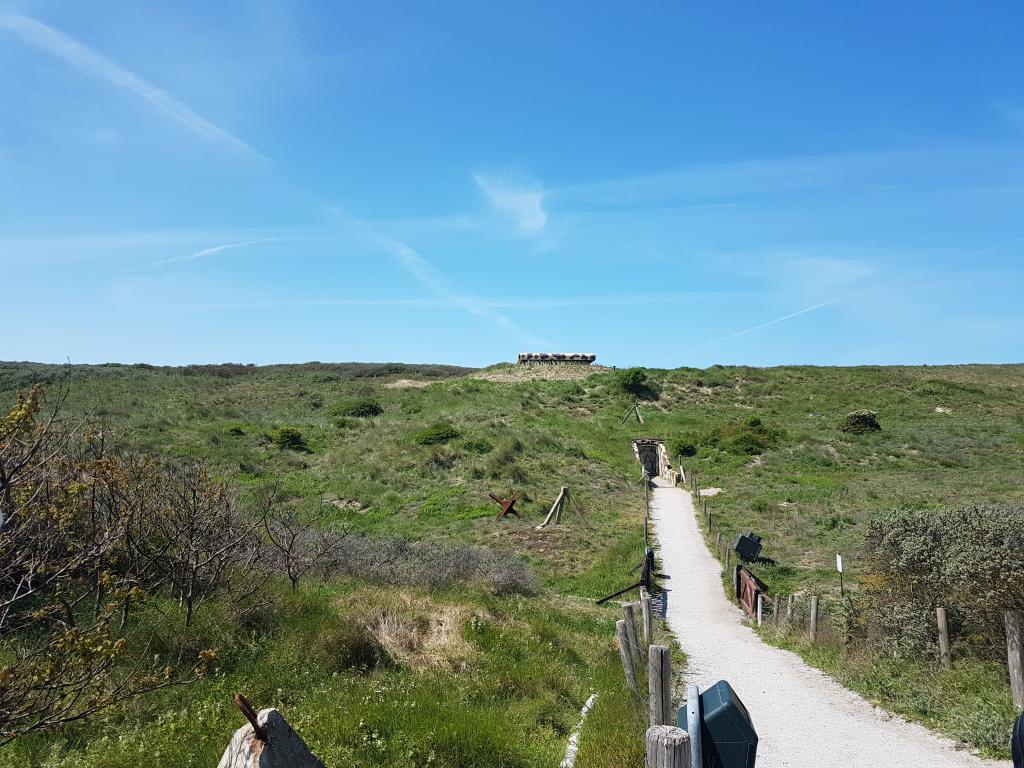The topic of this thesis-lab is the Atlantikwall. The Atlantikwall is a 5,000-kilometre-long line coastal defense system consisting of fortifications including coastal guns, batteries, mortars, and artillery. It covered the whole Atlantic coastline of Europe, running from Norway till Portugal, shaping the coastal landscape of the Atlantic and dealing with climate change and sea level rise. This line is contested because of its past, showing the trauma of World War 2. How can this large-scale landscape contribute to a sustainable and inclusive future? The main challenge of this thesis lab is at the intersection of heritage and social challenges and developments of today.
What is the role of heritage in our current society and of the contested Atlantikwall specifically?
Although many of the Atlantikwall structures have fallen into the ocean, have been demolished, or disappeared under sand at several locations along the Dutch coast elements of the Wall are still viewable in present landscapes, memorizing this difficult period in our history. Particularly these bunkers which were used for the Cold War period and can be used in a world which is more imbalance. The Atlantik Wall is considered contested heritage as part of trauma-scape, a landscape showing the trauma, pain and hurt of memories from the past. A slowly changing attitude towards the remains from erasing till preserving; from painful memory to remembrance of what should never happen again. These landscapes can be used to connect people to overcome the trauma by collaboration, storytelling, and performative arts? How can the community be involved in these contested places?
The main challenges and research questions
- How can or must the Atlantik Wall’s cultural heritage rightfully play a role in environmental policy and spatial designing with the tangible and intangible past?
- How can the remains of the Atlantik Wall be used to solve social and spatial challenges such as climate change, sustainability, and inclusivity?
- How can this large-scale military landscape be used to improve nature and biodiversity of or create new nature (rewilding) with the challenges or sea level rise in our European coastal landscapes?
- What principles, guidelines and strategies are needed for sustainable preservation, heritage management, preservation for development, Faro, tangible and intangible heritage?
- How can we integrate professionals and amateurs into an Atlantik Wall’s heritage community considering also the (illegal) trade in WWII objects? (See Platform Militair Erfgoed)
- How can the contested heritage of Atlantik Wall meet the goals of Treaty of Faro? Can we put people central in creating Living Heritage. Can it be utilized for recreation and tourism? Can bunkers be part of local communities?
- Participation: Bunkermuseums: how can we attract more visitors that the standard bunker fanatics? And what story do we want to tell in the future with the Atlantik Wall? Which and how can you show different narratives in bunker museums (collection)?
- How to deal with Atlantik Wall remains in archaeological excavations? What to do with the objects? What does it contribute to our knowledge of this period?
- How can we overcome the trauma of landscapes by community building? Which methods can you use for participation and co-creation?
- Your own question?
Application:
Application for 2025-2026 is open from September 15th until October 12th (23:59)!
What is a thesislab?
In tackling today’s challenges, nothing is simple. To shape a better future, we need to be inquisitive and bold. This means crossing disciplinary borders, embracing the discomfort of not knowing, and navigating complexity. This is not just a thesis—it’s a real adventure.
Make real impact with your thesis by joining an LDE Thesis lab. You will write your individual master thesis based on a real-life challenge. Together with students from other disciplines, you will join an extracurricular program to unravel the complexity of the Lab's challenge. In workshops, enrichment sessions and excursions you meet professionals, academic experts and societal partners. Together you learn, share and collaborate and contribute to a common, interdisciplinary result with real impact.
See more information on the LDE Thesis Labs website.
In 2025-2026 we organise 11 new labs!
You can apply for LDE Thesis Labs on:
- The Future of Repair
- Sustainable Aviation: Wings of the Future
- Energy-efficient Horticulture by Circular Practices
- De Regeneratieve Delta (NL)
- Groene Zorg (NL)
- Earth Observation for the Dutch Caribbean

